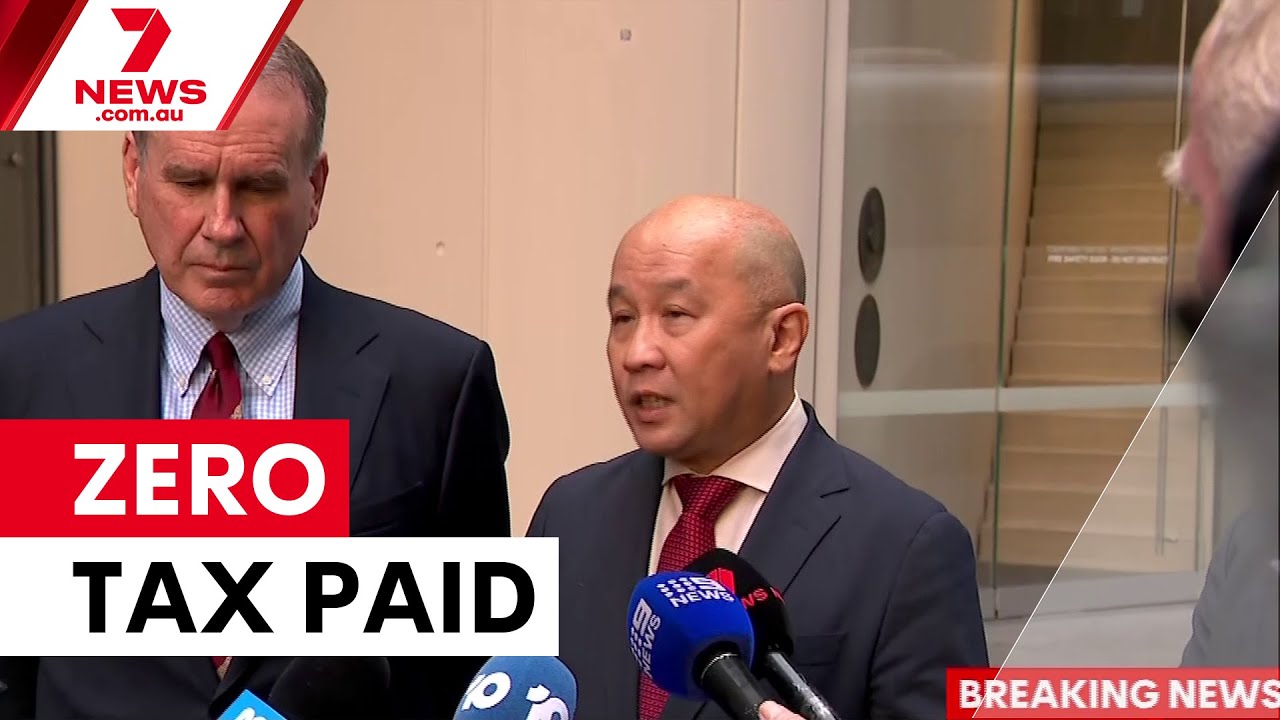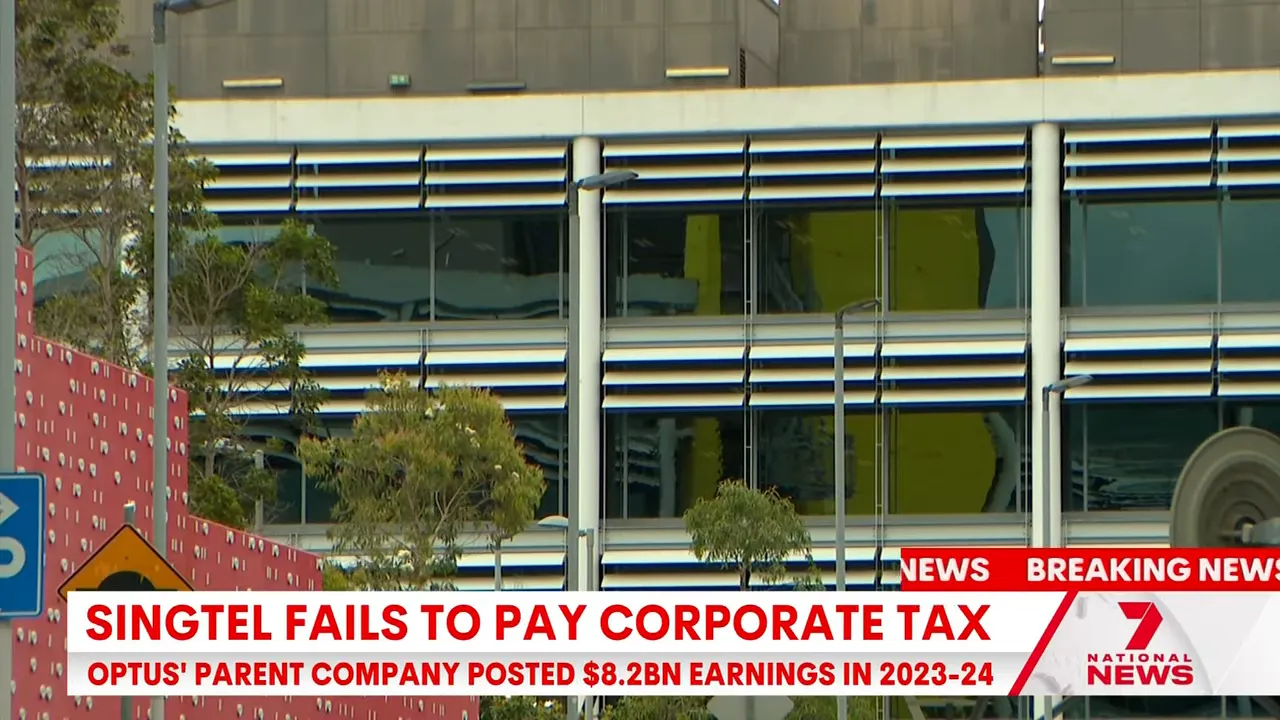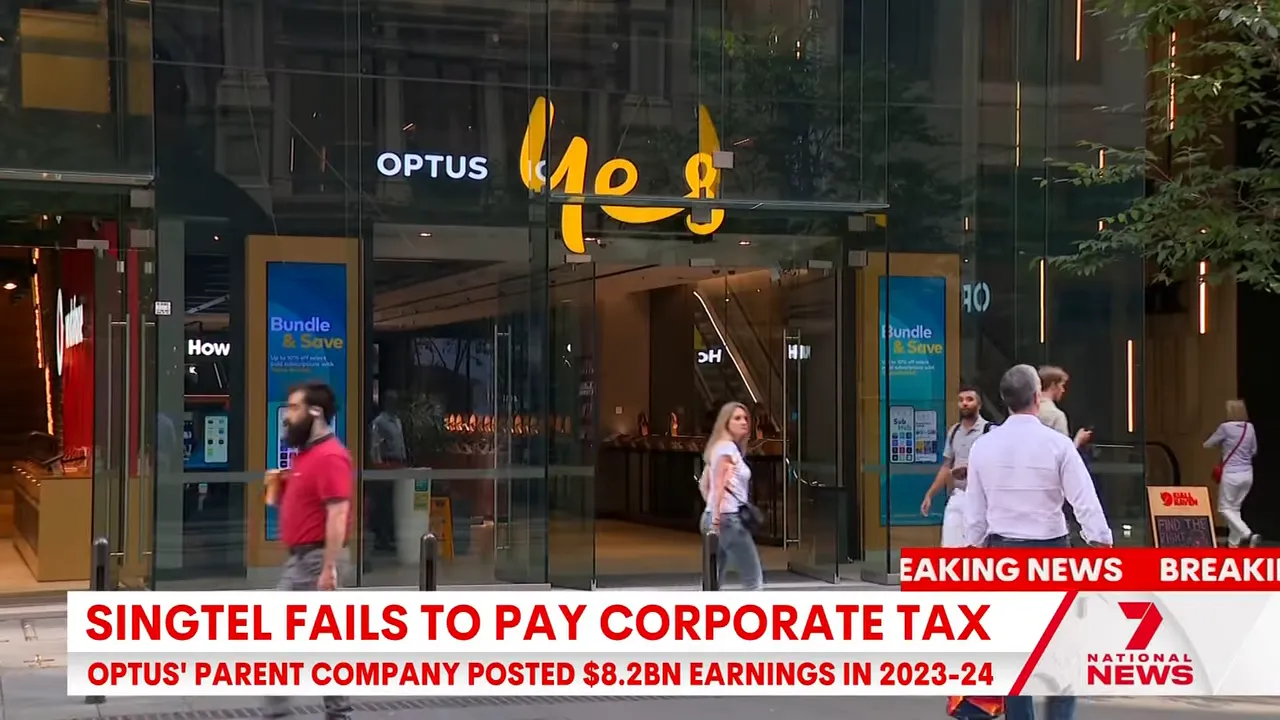Optus parent company pays zero tax in 2023–24, ATO report reveals

I'm reporting for 7NEWS Australia: the Australian Taxation Office's annual corporate tax report has revealed that Singtel — the parent company of Optus — did not pay any corporate tax in the 2023–24 financial year despite earning substantial revenue from Australian customers.
Table of Contents
- Key points at a glance
- What the ATO report revealed
- How can a large company pay no corporate tax?
- Why this matters to Australians
- What happens next?
- FAQ
- Conclusion
Key points at a glance
- Singtel paid no corporate tax in the 2023–24 financial year, according to the ATO's corporate tax report.
- Singtel earned more than $8.2 billion in income from Australian customers during that reporting period.
- The revelation raises questions about multinational tax arrangements, deductions and how corporate tax liabilities are calculated.

What the ATO report revealed
Breaking news this afternoon: Optus's parent company failed to pay any corporate tax in the 2023–24 financial year.
Breaking news this afternoon and it's just emerged that Optus's parent company failed to pay any corporate tax in the 2023-24 financial year.
The ATO's annual corporate tax report lists taxable income, tax paid, and effective tax rates for major companies operating in Australia. In Singtel's case, the line item for corporate tax paid in Australia for 2023–24 shows a nil amount, while reported income from Australian customers exceeded $8.2 billion.

How can a large company pay no corporate tax?
There are several lawful mechanisms that can reduce or eliminate a company's corporate tax bill in a given year. The ATO report provides the data; interpreting why a company ended up with a nil tax liability typically requires digging into financial statements and tax notes. Common reasons include:
- Carried-forward tax losses from earlier years offsetting current taxable income.
- Large deductible expenses, such as interest, depreciation or restructuring costs.
- Use of tax offsets, credits or incentives available under Australian law.
- Timing differences between accounting profit and taxable income.
- Intercompany arrangements within multinational groups that affect where profits are recognised.
Important caveat
Reporting a nil tax payment does not automatically imply illegal behaviour. It can reflect legitimate tax planning within the rules. That said, such outcomes often prompt public scrutiny and further examination by tax authorities and policymakers.
Why this matters to Australians
Consumers and taxpayers frequently express concern when well-known companies report high revenues but little or no corporate tax. The issues at stake include:
- Fairness: whether large corporations are contributing their share to public services.
- Policy: whether current tax rules allow profit shifting or outcomes perceived as unfair.
- Transparency: how clearly companies report the drivers behind their tax positions.
When a firm serving millions of Australians reports billions in income yet pays no corporate tax domestically, it reignites debate about multinational tax settings and whether changes are needed to ensure a fairer tax system.
What happens next?
Possible next steps include:
- Closer public and media scrutiny of Singtel's Australian financial statements and tax disclosures.
- Questions in parliament or from regulators seeking clarity on the drivers of the nil tax outcome.
- Potential reviews by the ATO if there are red flags or a need for further examination.
Tax policy is also on the agenda: lawmakers may use high-profile examples to argue for reform — either tightening the rules around multinational profit allocation or improving transparency requirements.
FAQ
Q: Did Singtel break the law by paying no corporate tax?
A: Not necessarily. Paying no corporate tax in a given year can be the result of legitimate tax deductions, offsets, or carried-forward losses. Determining legality requires examining detailed tax filings and ATO assessments.
Q: How much revenue did Singtel report from Australian customers?
A: The ATO report shows Singtel earned more than $8.2 billion in income from Australian customers in the 2023–24 financial year.
Q: Will the ATO investigate Singtel?
A: The ATO reviews company tax returns and may investigate further if it identifies inconsistencies or areas of concern. Public reporting can increase scrutiny, but investigations depend on the ATO's risk assessments.
Q: What can be done to prevent large companies from paying little or no tax?
A: Policy options include tightening international tax rules, improving transparency of tax payments and profit allocation, introducing minimum taxes, or reforming deductions and transfer pricing rules. Each option has benefits and trade-offs.
Conclusion
The ATO's corporate tax report has put Singtel's Australian tax position in the spotlight: more than $8.2 billion in local income and a reported nil corporate tax liability for 2023–24. As the story develops, expect scrutiny from regulators, lawmakers and the public — and debate about whether the current tax system delivers a fair outcome for Australian taxpayers.
For more reporting and updates, follow 7NEWS Australia.


